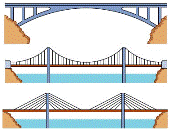Civil and Environmental Engineering, Department of

Department of Civil and Environmental Engineering: Faculty Publications
Document Type
Article
Date of this Version
2020
Citation
J. Transp. Eng., Part A: Systems, 01820001-1
https://doi.org/10.1061/JTEPBS.0000418
Abstract
The COVID-19 pandemic has been an enormous global disruption with immense economic, environmental, and social impacts throughout the world. Only world wars and the flu pandemic of 1918 are comparable in the wide range of consequences, including fatalities, over a relatively short period of time. Unfortunately, we can expect other major disruptions to occur in the future. In this editorial, we intend to discern some lessons for the transportation engineering profession that can be learned from the current catastrophe that can help us prepare for future disruptions. We will ignore nontransportation aspects of the pandemic such as the development of treatments, tests, and vaccines. It is clear that people around the world are experiencing significant suffering as a result of the pandemic. However, we believe that transportation engineering has a role in mitigating the negative effects of the current pandemic and future disruptive events. The intent of this editorial is to indicate areas of research that may support this goal. As in the past (Hendrickson and Rilett 2019), the Journal of Transportation Engineering, Part A: Systems is prepared to be a publishing venue for serious scholarly papers addressing impacts of the pandemic, new intelligent transportation system approaches, and preparation for future disruptions.


Comments
© ASCE. Used by permission.